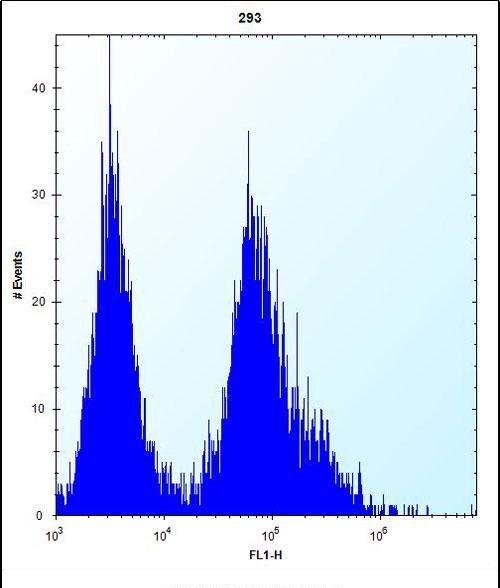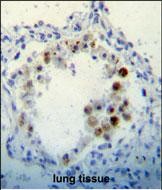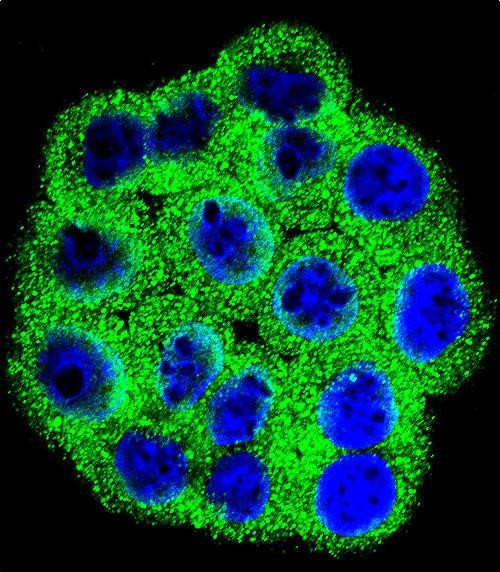



| WB | 1/1000 | Human,Mouse,Rat |
| IF | 咨询技术 | Human,Mouse,Rat |
| IHC | 1/100-1/500 | Human,Mouse,Rat |
| ICC | 1/10-1/50 | Human,Mouse,Rat |
| FCM | 1/10-1/50 | Human,Mouse,Rat |
| Elisa | 咨询技术 | Human,Mouse,Rat |
| Aliases | Cyclin-dependent kinase 4 inhibitor B, Multiple tumor suppressor 2, MTS-2, p14-INK4b, p15-INK4b, p15INK4B, CDKN2B, MTS2 |
| Entrez GeneID | 1030 |
| WB Predicted band size | 14.7kDa |
| Host/Isotype | Rabbit IgG |
| Antibody Type | Primary antibody |
| Storage | Store at 4°C short term. Aliquot and store at -20°C long term. Avoid freeze/thaw cycles. |
| Species Reactivity | Human, Mouse, Rat |
| Immunogen | This CDKN2B antibody is generated from rabbits immunized with a KLH conjugated synthetic peptide between 102-130 amino acids from the C-terminal region of human CDKN2B. |
| Formulation | Purified antibody in PBS with 0.05% sodium azide. |
+ +
The CDKN2B (Cyclin-Dependent Kinase Inhibitor 2B) gene, located on chromosome 9p21. encodes the p15INK4b protein, a key regulator of cell cycle progression. As a member of the INK4 family, p15INK4b inhibits cyclin-dependent kinases CDK4 and CDK6. preventing phosphorylation of the retinoblastoma (Rb) protein and blocking G1-to-S phase transition. This tumor suppressor is often inactivated in cancers through deletions, mutations, or promoter hypermethylation, contributing to uncontrolled cell proliferation. CDKN2B dysregulation is linked to glioblastoma, leukemia, melanoma, and other malignancies.
CDKN2B antibodies are essential tools for detecting p15INK4b expression in research and diagnostics. They are widely used in techniques like Western blotting, immunohistochemistry (IHC), immunofluorescence (IF), and flow cytometry to study protein localization, expression patterns, and interactions in normal versus diseased tissues. These antibodies help investigate CDKN2B's role in cellular senescence, TGF-β-mediated growth arrest, and epigenetic silencing mechanisms. Specificity validation is critical, as cross-reactivity with homologous proteins (e.g., p16INK4a from the adjacent CDKN2A gene) can occur. Commercially available clones vary in host species, epitope recognition, and applications, requiring careful selection based on experimental needs. Ongoing research focuses on CDKN2B's potential as a therapeutic target or biomarker for cancer prognosis and treatment response.
×